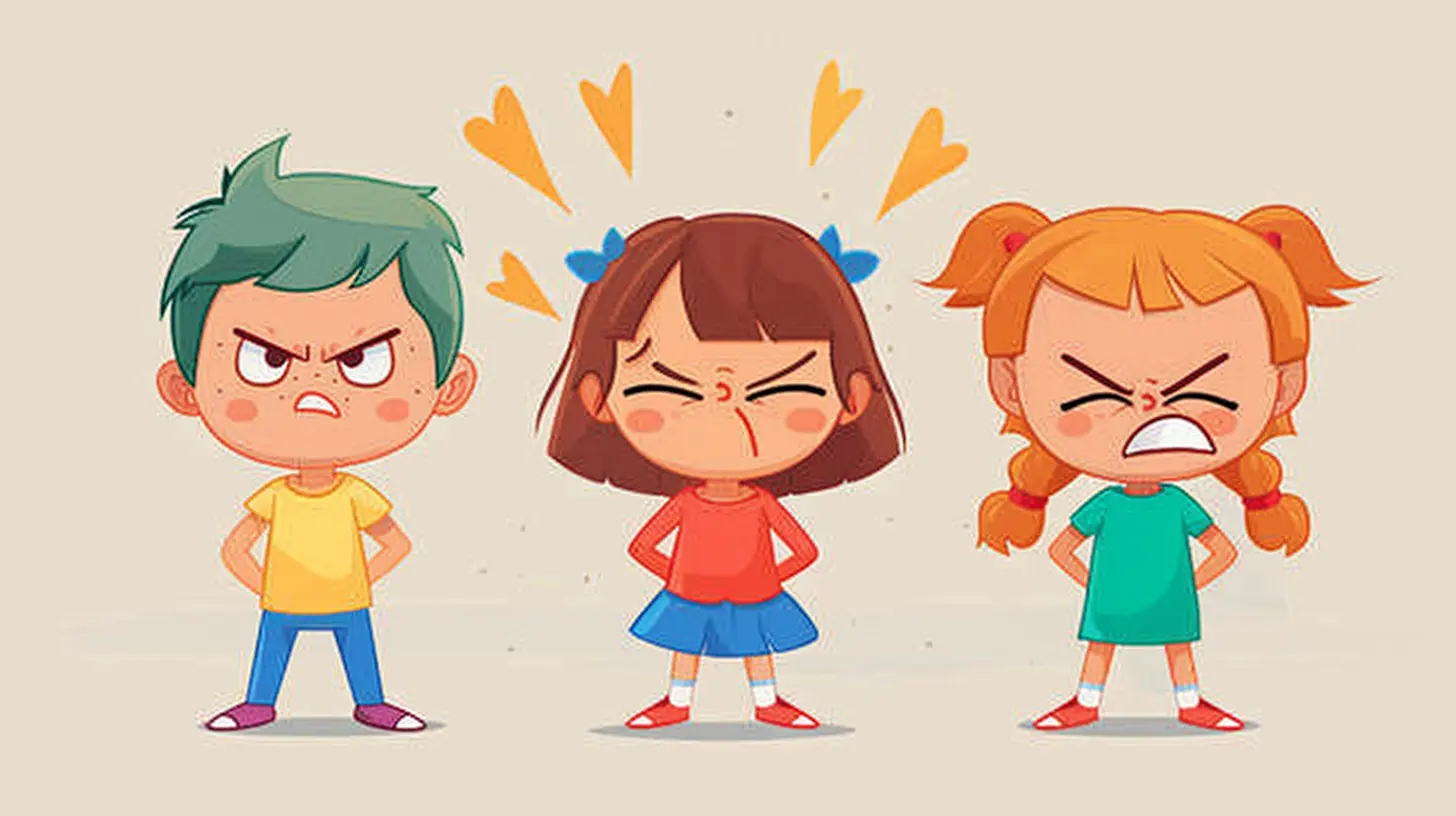Helping Your Toddler Navigate Big Emotions
1 July 2025
Parenting a toddler is like riding an emotional rollercoaster—one minute they're giggling uncontrollably, and the next, they're on the floor screaming because their banana broke in half. If you've ever found yourself wondering how such tiny humans can have such enormous feelings, you're not alone.
Toddlers are still learning how to process and express emotions, and as parents, it's our job to guide them through these overwhelming moments. In this article, we'll dive into why toddlers experience big emotions, how to help them regulate their feelings, and practical strategies to create a calmer home.

Why Do Toddlers Have Big Emotions?
Toddlers experience emotions with full intensity because their brains are still developing. Their prefrontal cortex—the area responsible for impulse control and emotional regulation—is not fully formed, making it difficult for them to manage frustration, disappointment, or excitement.Imagine feeling angry, but not knowing how to say, "I’m frustrated because I wanted the red cup, not the blue one!" Instead, toddlers express emotions through crying, screaming, or even flopping onto the floor. At this stage, they need us to help them understand and cope with these feelings.

Signs Your Toddler Is Struggling With Big Emotions
Every child expresses emotions differently, but here are some common signs that your toddler is struggling:- Frequent tantrums over small frustrations
- Screaming, crying, or hitting when upset
- Difficulty calming down after getting overwhelmed
- Clinginess or needing extra comfort
- Trouble sharing or taking turns
If these behaviors sound familiar, don’t worry—it’s completely normal. Let’s explore how you can support your little one during these intense emotional moments.

How to Help Your Toddler Regulate Their Emotions
1. Stay Calm Yourself
Toddlers pick up on your emotions. If you react with frustration or anger, they’re likely to escalate. Instead, take a deep breath and model calm behavior. Think of yourself as their emotional anchor—when they feel like their world is falling apart, they need you to be steady.2. Validate Their Feelings
Rather than brushing off their emotions with "You're fine" or "It's no big deal," acknowledge what they're going through. Say things like:- "I see you're really upset that we have to leave the park."
- "You're frustrated because your tower fell over. That must be so disappointing!"
Validating their feelings helps them feel understood and teaches them that emotions are normal.
3. Teach Them the Words for Their Feelings
Toddlers often melt down because they don’t have the words to express their frustration. Teaching them emotion words—like sad, frustrated, mad, or excited—can empower them to communicate better. Use real-life moments to label their feelings:- "You’re stomping your feet. Are you feeling mad?"
- "You have a big smile! You look happy!"
4. Offer Comfort, Not Just Solutions
When your toddler is upset, sometimes they don’t need a solution right away—they just need you to be there. Offer a hug, hold their hand, or sit with them while they calm down. Sometimes, a reassuring presence is more powerful than any words you can say.5. Use Simple Breathing Techniques
Teaching simple breathing exercises can help your toddler calm down. For example:- "Smell the flower, blow out the candle." (Inhale deeply like smelling a flower, then exhale as if blowing out a candle.)
- "Belly breaths." (Encourage them to put their hands on their tummy and feel it rise and fall as they breathe slowly.)
These techniques give them a concrete way to self-soothe.
6. Create a Calm-Down Corner
Instead of time-outs, try a calm-down corner—a cozy space filled with pillows, stuffed animals, or books where they can go when they need a moment. Let them know it's a safe place to relax, not a punishment. Over time, they’ll learn to go there on their own when they need to reset.7. Set Clear and Consistent Boundaries
Toddlers thrive on routine and predictability. If they know what to expect, they’re less likely to feel out of control. Set firm yet loving boundaries and communicate them clearly. Instead of saying, "Stop hitting your brother!" try:- "I see you're upset, but we use gentle hands."
- "It's okay to be mad, but it's not okay to throw toys."
Boundaries help toddlers feel safe by giving them clear expectations.
8. Offer Choices to Give Them a Sense of Control
Toddlers love to assert their independence. When possible, offer choices so they feel like they have some control over situations. Instead of saying, "Put on your shoes," try:- "Do you want to wear the red shoes or the blue ones?"
- "Would you like to brush your teeth before or after your bath?"
Small choices can prevent power struggles and reduce emotional meltdowns.
9. Encourage Physical Activity
Toddlers have a ton of built-up energy, and sometimes their emotions explode simply because they haven’t had enough physical activity. Make sure they get plenty of time to run, jump, and play outside. Movement is a great natural stress reliever!10. Recognize Hunger and Tiredness
A hungry or overtired toddler is basically a ticking time bomb. Keep snacks on hand and try to stick to a consistent nap and bedtime routine to prevent meltdowns caused by exhaustion or low blood sugar.
What to Do During a Toddler Meltdown
Even with all the best strategies, meltdowns will still happen. Here’s how to handle them:1. Stay calm: Take a deep breath and remind yourself that this is normal.
2. Get down to their level: Make eye contact and speak softly.
3. Validate their feelings: Acknowledge what they’re going through.
4. Give them space (if needed): Some toddlers need a little room to cool off.
5. Offer comfort when they’re ready: A hug, kind words, or simply sitting with them can help.
6. Don’t give in to unreasonable demands: If they’re throwing a tantrum over wanting candy before dinner, stay firm in your boundaries.
7. Redirect their attention: Once they are calmer, gently shift their focus to something else.
Encouraging Emotional Growth Over Time
Helping your toddler navigate big emotions is an ongoing process. Over time, with your guidance, they’ll learn to regulate their feelings more effectively. Celebrate small victories—every time they use words instead of screaming or take a deep breath instead of lashing out, they’re making progress!
Final Thoughts
Toddlers don’t throw tantrums to be difficult—they’re simply trying to express feelings they don’t fully understand yet. Your patience, love, and guidance play a crucial role in teaching them how to navigate their emotions in a healthy way.So the next time your little one has a meltdown over something seemingly small, take a deep breath, offer support, and remind yourself—this is just a season, and with time, they will learn.
all images in this post were generated using AI tools
Category:
Parenting ToddlersAuthor:

Zelda Gill
Discussion
rate this article
2 comments
Uri McTigue
What a wonderful read! Helping toddlers navigate their big emotions can feel overwhelming, but your tips are so relatable and practical. It’s reassuring to know that we’re all in this together. Can’t wait to try out these strategies with my little one! Thank you!
November 19, 2025 at 5:17 AM

Zelda Gill
Thank you so much for your kind words! I'm glad you found the tips helpful. Wishing you and your little one all the best on this journey!
Sabina Rogers
Embracing their feelings fosters connection and understanding—great guidance for parents!
July 4, 2025 at 2:41 AM

Zelda Gill
Thank you! Fostering emotional understanding is key to building strong connections with our children.


